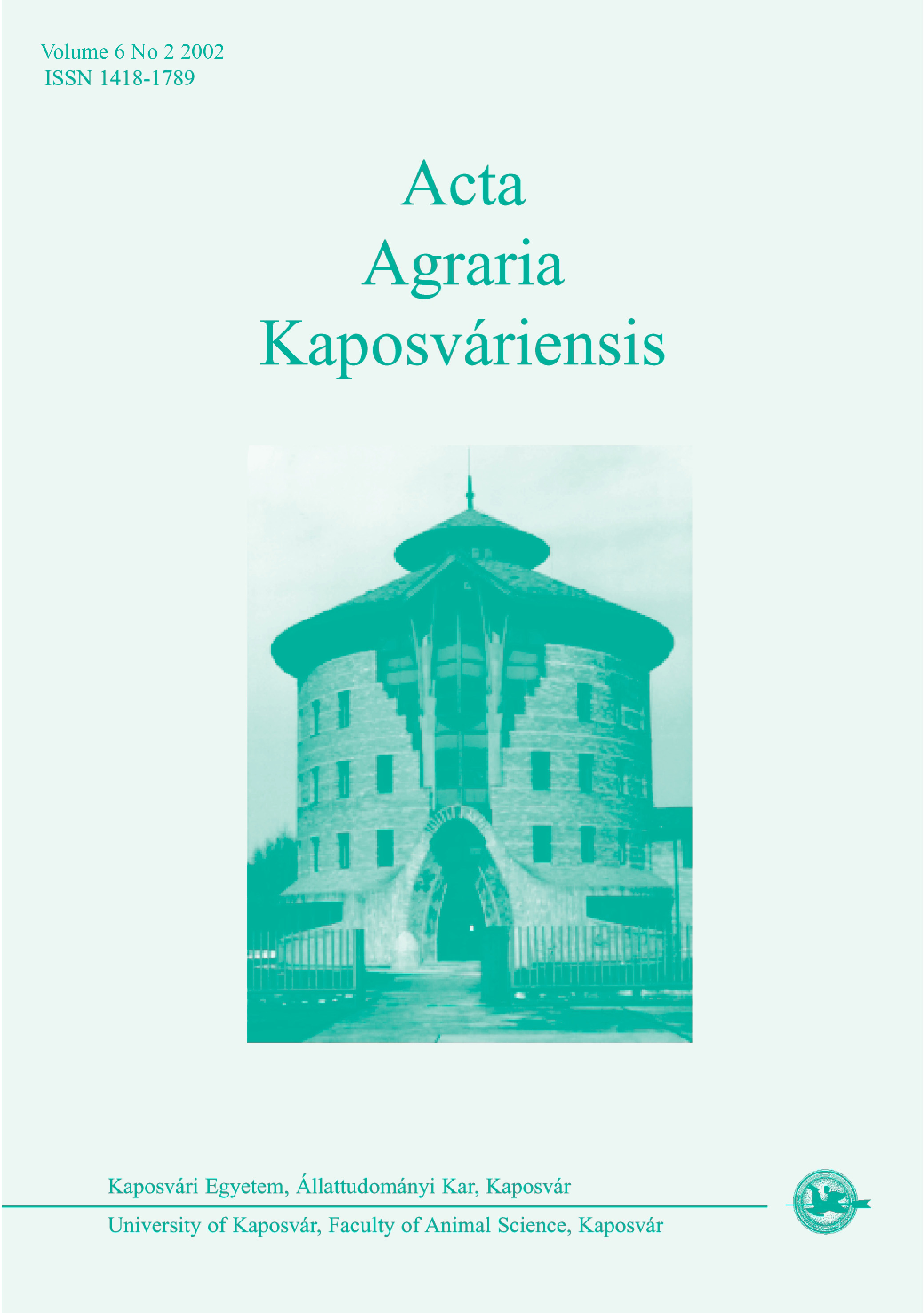Interactions of organic agriculture, rural development and environment protection
Kulcsszavak:
rural development, organic agriculture, environment protection, eco-tourismAbsztrakt
Rural development has recently been placed in focus in economic policy of developed countries. Rural development itself is considered as an answer to a circle of problems that covers economics with low income level, lack of alternative employment capabilities and migration from rural areas. Within national economy sectors it is ag economy that has the strongest connection with rural areas mainly because the rural area itself delivers the operation field and labour base of ag economy (especially of agriculture and forestry). Agriculture and forestry is the user and partially the producer of renewable resources, in other words they offer special environment economic services. In Hungary the biomass can be taken the most important renewable resource. Organic farming has a special place within food economy and this specialty can be connected to any function of the rural area. Rate of organic lands remarkably increased in recent years because not only of state subsidies but also of increasing demands and the evergrowing sense for environment. This overall development reached Hungary, too. In December 2001 the estimations showed 79,187 ha and within this 49,490 ha had been registered as approved organic area. It means 1.3% of total agricultural land. Organic farming – as producers say – contributes to conserving the environment and the rural land. The same is stated by those consumers who decided to buy organic foods.
Hivatkozások
BIOKONTROLL Hungária Kht. (2002). Éves jelentés. (Annually Report.) Budapest.
Bódi, A. (1994). A biotermékek kiskereskedelmének és fogyasztásának ananlízisa hazánkban. (The analysis of retailing and consumption of organic products in Hungary.) Hallgatói szakdolgozat, KÉE, Budapest, 1–82.
Buckwell, A. (1997). Towards a Common Agricultural and Rural Policy for Europe. In: European Economy, European Commission Directorate – General for Economic and Financial Affairs, Reports and Studies, No 5, Luxembourg.
Frühwald, F., Mokry, T. (1999). Biotermékek belföldi piaca. (The domestic market of organic products.) Biokultúra, 6. 16–17.
Hinderer, R. (1996). Átalakulóban a biotermékpiac. (The organic product market in transition.) Biokultúra, 7. 4–5.
SÖL (2000). Ökolandbau – weltweit auf dem Vormarsch. Ökologie und Landbau, 3. 2.
Szente, V. (2001). Fogyasztói preferenciák a bioélelmiszerek piacán Magyarországon és Ausztriában. (Consumer preferences on the market of organic products in Hungary and Austria.) Hallgatói szakdolgozat, Kaposvári Egyetem, Kaposvár, 1–59.
Yuseffi, M., Willer, H. (2002). Ökologische Agrarkultur Weltweit 2002-Statistiken und Perspektiven. SÖL, Nürnberg, Sonderausgabe, 74. 21–25. 86.
ZMP (1999). Biotermékek piaca Hollandiában. (The market of organic products in the Netherlands.) 25. 1–25.
Letöltések
Megjelent
Folyóirat szám
Rovat
License
Copyright (c) 2002 Szakály Zoltán, Sarudi Csaba, Máthé Attila, Szente Viktória, Budvig Anita

This work is licensed under a Creative Commons Attribution-NonCommercial-NoDerivatives 4.0 International License.






